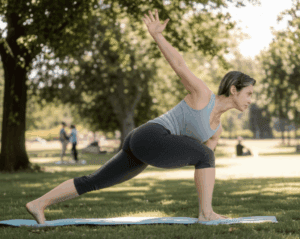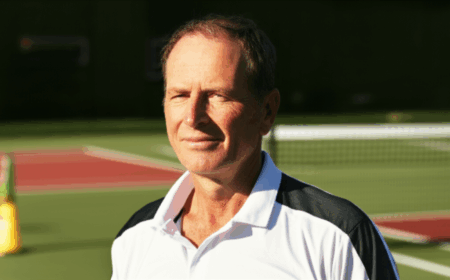In the demanding world of fitness entrepreneurship, where passion meets perspiration and business acumen intertwines with barbells, maintaining equilibrium is an art form. For a fitness founder, daily routines and steadfast rituals aren’t just about personal well-being; they are the bedrock upon which a thriving business and a healthy lifestyle are built. It’s a journey that requires discipline, adaptability, and a relentless commitment to both self and vision.
Drawing insights from numerous successful entrepreneurs and fitness leaders, we delve into the comprehensive strategies that define a fitness founder’s approach to health, business, and mental fortitude.

The Non-Negotiable Morning: Setting the Tone for a Productive Day
The morning routine is often hailed as the cornerstone of success for high-achievers, and fitness founders are no exception. It’s a time carved out for intentionality before the demands of the day take over. Many successful entrepreneurs, including fitness leaders, emphasize the importance of waking up early and consistently.
Hydration and Movement: Fueling Body and Mind
A common first step for many is immediate hydration. Drinking water upon waking helps rehydrate the body after a night’s sleep and can kickstart metabolism. Following this, physical activity is almost always a priority. Richard Branson, for instance, wakes around 5 a.m. for exercise, claiming it allows him to “achieve twice as much.” Whether it’s a brisk walk, a gym session, yoga, or even kitesurfing, movement is key to energizing the body and sharpening the mind. Studies suggest that exercising in the morning can lead to better performance later in the day, especially for those working long hours.
Mindfulness and Goal Setting: Cultivating Clarity
Beyond physical activity, successful founders often integrate practices that cultivate mental clarity. Meditation is a popular choice, helping to reduce stress, improve focus, and enhance emotional regulation. Setting daily goals and reviewing to-do lists also features prominently, ensuring that the day starts with clear objectives and priorities. Some even suggest avoiding immediate phone use to allow for undisturbed thought and planning.

Workout Philosophy: More Than Just Physical Gains
For a fitness founder, exercise isn’t merely a habit; it’s a core philosophy that permeates their business and personal brand. It’s about embodying the very lifestyle they advocate for their clients.
Consistency Over Intensity: Sustainable Progress
While high-intensity workouts have their place, many founders emphasize consistency as the ultimate driver of long-term results. The goal is to build sustainable habits rather than relying on sporadic bursts of motivation. This often means making workouts non-negotiable appointments in their calendar, integrating them seamlessly into their daily or weekly schedule.
Variety and Adaptability: Keeping it Fresh
To prevent stagnation and burnout, successful fitness professionals often incorporate a variety of training modalities. This could include a mix of strength training, cardio, flexibility, and mobility work. The ability to adapt the workout schedule to changing circumstances, such as travel or unexpected work commitments, is also crucial for maintaining balance. Short, effective workouts can be particularly useful for busy schedules.

Nutrition Strategies: Fueling Performance and Longevity
Nutrition is another pillar that fitness founders meticulously manage, understanding its profound impact on energy, recovery, and overall well-being.
Mindful Eating and Meal Preparation: Strategic Fueling
Many successful individuals in the fitness space advocate for mindful eating and consistent meal preparation. Planning meals in advance ensures healthy options are readily available, preventing impulsive, less nutritious choices. This strategic approach to fueling supports sustained energy levels throughout demanding workdays.
Holistic Integration: Beyond Just Calories
For fitness businesses, nutrition coaching is increasingly seen as an essential offering, enhancing client results and retention. Founders often integrate nutritional advice into training sessions, educating clients on macronutrients, hydration, and mindful eating. This holistic view emphasizes that physical activity alone is insufficient without proper dietary support.

Business Acumen: Leading a Thriving Fitness Enterprise
Running a fitness business requires more than just fitness expertise; it demands strong leadership and strategic thinking.
Defining a Clear Vision and Culture
Successful fitness founders often possess a clear leadership philosophy and foster a strong team culture. This involves defining “how we do things around here,” from client interactions to daily operations. Prioritizing the well-being and growth of their team is also critical, as a capable and committed team directly impacts client service and overall business success.
Strategic Planning and Adaptation
Developing a robust business plan, including defining services, target markets, pricing, and marketing strategies, is fundamental. The fitness industry is dynamic, with trends constantly evolving. Therefore, successful founders are adaptable, continuously learning, and willing to pivot their strategies to meet client needs and market demands. Leveraging technology, such as fitness apps and online platforms, can also help streamline operations and reach a wider audience.

Mental Well-being: The Unseen Strength
Amidst the relentless pace of entrepreneurship, prioritizing mental fitness is paramount. Founders often face unique stressors, including financial pressure, work-life balance challenges, and potential isolation.
Stress Reduction and Resilience Building
Many incorporate stress-relief activities like meditation and yoga into their routines. Engaging in hobbies outside of work also helps maintain a balanced life and prevent burnout. Building resilience involves developing the capacity to deal with setbacks with a positive mindset, learning from negative emotions, and avoiding self-sabotage.
Seeking Support and Setting Boundaries
Recognizing the signs of burnout and actively planning for self-care is crucial. This includes setting clear boundaries between work and personal life and giving oneself permission to disconnect. Peer support groups and executive coaching with a therapeutic edge are also valuable resources for entrepreneurs to navigate challenges and foster a sense of community.
In essence, the life of a fitness founder is a testament to holistic living. Their routines and rituals are meticulously crafted not just to survive the entrepreneurial journey, but to thrive, inspiring others to achieve their own versions of health and success along the way.






